Intermission Stories (9)
In 1950, The U.S. was not prepared for a major conflict again. The shortage of logistics personnel was so great that the 8th Army had hired 150,000 Japanese to perform functions at depots and ports; and it takes more than the foot soldier to handle a war. Approximately 31.5 million tons of matériel was shipped from the States and The Japan Logistical Command in Yokohama had the job of moving that to Korea. On top of these functions. the US needed to teach the ROK Armies and for this task they developed the Korean Military Advisory Group. (KMAG)
SFC Frank Imparato
SFC Imparato was one of the Army’s new pioneers in the US Military Advisory Group to South Korea, known as the KMAG. He was called upon to demonstrate a variety of talents – patience, tact, linguistic ability and superior professional knowledge – he had to make a supreme effort to understand people and traditions vastly different from his own. The KMAG worked side-by-side with the ROKs in all phases of military life, Infantry, Artillery, Signal Corps, etc., and was one of the few advisory groups to operate in both peacetime and war. They were an integral part of the 8th Army.
Frank Imparato enlisted in 1945, took boot, basic and bivouac training and then WWII was over. Most of the trainees were scheduled for occupation duty overseas to replace the veteran troops, but Frank was ordered to remain as an infantry instructor. It was during his last year of enlistment that he received orders to report to San Francisco for debarkation to the Far East and he shipped out on the General William O. Black with about 2,000 other soldiers.
It was not until the 5th replacement depot that he realized he was headed for North Korea. In Seoul, he boarded a C47/C54 with other G.I.s wearing parachutes. (timeline would fit with the 187th RCT). They landed at K-50 airstrip located around Yang Yang and Mundon-ni in the Punch Bowl sector. (regular readers here know just how dangerous the Punch Bowl was.).
He was at first somewhat beside himself to be assigned to an all-Korean outfit rather than a US one, but that was his orders. Frank was responsible for approximately 200 US military personnel consisting of cooks, motor pool, signal corps personnel, Marine spotters and the Air Force radio jeeps (to keep in touch with downed pilots). ” One US pilot of a P-51 Mustang radioed for help. His plane’s electrical and hydraulic system was pretty much shot up and he was unable to lower his landing gear. He was directed to land at K-50 airstrip. He came in low and fast from a distance, skimming and thrashing through rice fields to attempt a belly landing. He finally came to rest cross wise on the air strip. His engine was practically torn out and you could see the P-51 had cracked in half. The pilot was shaken, but not hurt. There was a considerable number of aircraft damaged by small arms and artillery fire …This was a common occurrence.”
On several occasions, Frank was in the company of generals and commanders, all to discuss overall combat status and situations. He made quite a few visits to M*A*S*H* units – a sight he would never forget. He returned to the States and was discharged at Camp Kilmer, New Jersey, February 1953 – 6 days shy of serving 7 years.
Frank says, “I do pray mostly every night that I made a safe return home from Korea with a wealth of information, experiences and memories. To all Korean veterans — KIA, MIA, POW, the able and disabled veterans I say – God Bless them all.”
#################################################################################
Farewell Salutes –
Francis Adams – Sammamish, WA; USMC, WWII, 1st & 6th Marine Divisions, PTO & then Korea
George “Skip” Allen – Ft. Lauderdale, FL; US Merchant Marines, WWII
Frank Cassara – Chicago, IL; US Army, Korea
Alfred D. Flavell – Frankton, New Zealand; RNZ Navy # 1332, WWII
J.C. Heath – Chickasha, OK; US Navy, WWII
Harold Herritt – Woodbridge, VA; US Army, Korea
Lewis T. Jones – Jacksonville, FL; US Coast Guard 22 years
William P. Leslie – Toronto, Canada; Royal Canadian Army, WWII
Edward Novak – Elmhurst, IL; US Army Air Corps, WWII
Mickey Rooney – (93) – Brooklyn, NY US Army, WWII (beloved actor and comedian)
Robert W. Schutt – Tequesta, FL; US Navy, Korea, USS Wisconsin
Ruth Steglich – El Paso, TX; US Navy WAVES, WWII
Edward Turner, Jr. – Seattle, WA; US Army, WWII
Herbert Wallach, Jr. – Miami, FL; US Army, WWII
#########################################################################################
Posted on April 7, 2014, in Korean War and tagged family history, History, Korean War, Logistics, Military, Military History, nostalgia, ROK, veterans, war. Bookmark the permalink. 37 Comments.
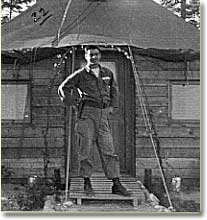
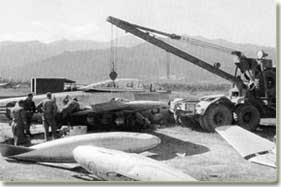
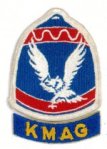
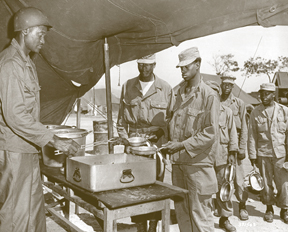
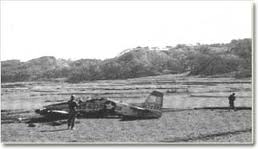
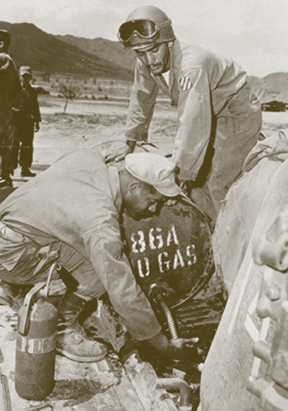
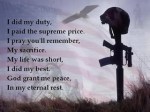







An impressive soldier all round.
My Vietnam unit was AATTV, Australian Army Training Team, Australia had 4 Victoria Cross recipients out of Vietnam, they were all AATTV.
Not sure if you are on facebook, but a check of our site will give you a great insight into many of our Vietnam members, who also have a lot of experience from their Korean times.
Ian
LikeLike
No, I have never been a Facebook kind of person, then they had 2 major security breaches, so I guess you could say I’m sort of a loner out here in cyberspace. I knew you were in Nam, thank God you were one who returned. Sounds like a group you might want to start another blog for.
LikeLike
Thanks for singing the praises of these unsung heroes!
LikeLike
You are very welcome, Carol. But, in my opinion, they deserve far more than I can give them.
LikeLike
Reblogged this on Foundations of The Twenty-First Century and commented:
The lessons of History, as well as our discussions here at Foundations, are about people, hopes and dreams; if we are to continue forward, bringing the Best ideas with us, let us keep all our powers of memory and observation, front and center.
Thanks, GP.
LikeLike
You have honored the people who have served to support their country with this reblog, thank you Johan.
LikeLike
Excellent history lesson, thank you.
LikeLike
You are very welcome, Grumpy.
LikeLike
That opening line was scary – considering the MAD doctrine – “In 1950, The U.S. was not prepared for a major conflict again.”
Winning campaigns are all about getting the logistics right, I reckon.
LikeLike
It is a scary opening line and that’s how they felt. It is also the argument today about reducing our military. By the time you finish reading that link I gave you, you can stop in here and give us all a lecture! 🙂
LikeLike
An excellent account of how important the logistical side of such events was.
A beautiful piece of history, serves as a reminder that there were so many things accomplished that most of us may well never know a thing about.
Thanks for sharing the journey.
Miss Lou
LikeLike
Very true, Miss Louella. I appreciate you dropping in and doing so much reading in one day. Great to know that now there is another person to remember these troops!
LikeLike
A different but vital task, and a new perspective on service in Korea.
LikeLike
People just don’t think about what has to go on behind the scenes and those people need recognition as well. Thanks for coming by.
LikeLike
Amazing story of Frank and the disabled plane. It’s amazing these ordinary individuals kept it together as extraordinary events unfolded around them.
LikeLike
They way Frank yalked in his memoir, I think he would firmly agree with you, Jacqui! Thanks for reading.
LikeLike
Logistics — or inadequate logistics — has defeated many an army. Think of Napoleon’s fateful Russian campaign or the Germans in WWII.
LikeLike
I get your point. I have been learning a lot about Napoleon from Martin’s site over at http://warandsecurity.com
LikeLike
I love the way guys pose in these pictures!
LikeLike
Sexy? What do you think, Adrienne?
LikeLike
I’m not sure. 🙂 but I think that’s the look the guys go for because they think it’s sexy! Okay, I guess it’s kinda sexy. lol.
LikeLike
🙂
LikeLike
Great profile. and it is true many of these guys do get over looked even they are vital.
LikeLike
Thank you, Andrew. I’m very glad so many are supporting these stories and remembering the troops.
LikeLike
These stories are becoming addictive – put the person to the history and reality ensues. Fabulous post.
LikeLike
Thank you, Mike – I’m very happy you’re enjoying them. Do you know of any stories from your troops?
LikeLike
Sadly with my dad only passing on tales when he had dementia I have nothing in your informative league by way of stories. I shall check the with a relative for he has a whole mass of stuff regarding my maternal grandfather who fought in WW1 and before that in the Sudan. Maybe there is something there. The thing is it is not just the information but the flesh that is built around the person in your posts that resonate with this reader – that’s what keeps the memory alive.
LikeLike
Thank you for responding. So sad to hear of your father, I hope you have fond memories of him. You should not allow that other material to go unspoken about, if you are lucky enough to retrieve it from your relative.
LikeLike
Bless them all… and you also GP for your blog.
Great story.
LikeLike
Thank you, Pierre. Your support means the world!
LikeLike
Another great post. I had heard that in Vietnam, there were 10 people behind each combat soldier. I don’t know if the number is accurate for this war, or even for that one, but they all served and they all should be remembered.
LikeLike
I completely agree, Dan. You always hear about the brave soldier in the field (and I’m not taking anything away from those brave men), but you hardly ever read stories about the ones behind them. That was another reason why I did the guest posts for Judy at Greatest Generation Lessons, not only did I enjoy it, but it showed how the homefront was behind [or not] the troops.
LikeLike
I agree whole heartedly; all the pieces are important.
LikeLike
Excellent post. Logistics is an absolutely vital part of war but it and the personnel involved do not get the credit that they should.
LikeLike
Very true, Martin. My reason for doing some of these stories. I’m having trouble finding any from a cook, truck driver, how about a dentist, etc.? I’ll keep looking.
LikeLike
Moving the stuff all over the place is probably bigger and just as important effort than fighting the battles. History is full of examples of how the weakness or vulnerability of supply lines determines outcome.
LikeLike
Very true, Carl – just some people don’t think of it as “romantic” enough to discuss, but it is VERY important. ALL the pieces have to fit together or the system doesn’t work.
LikeLike